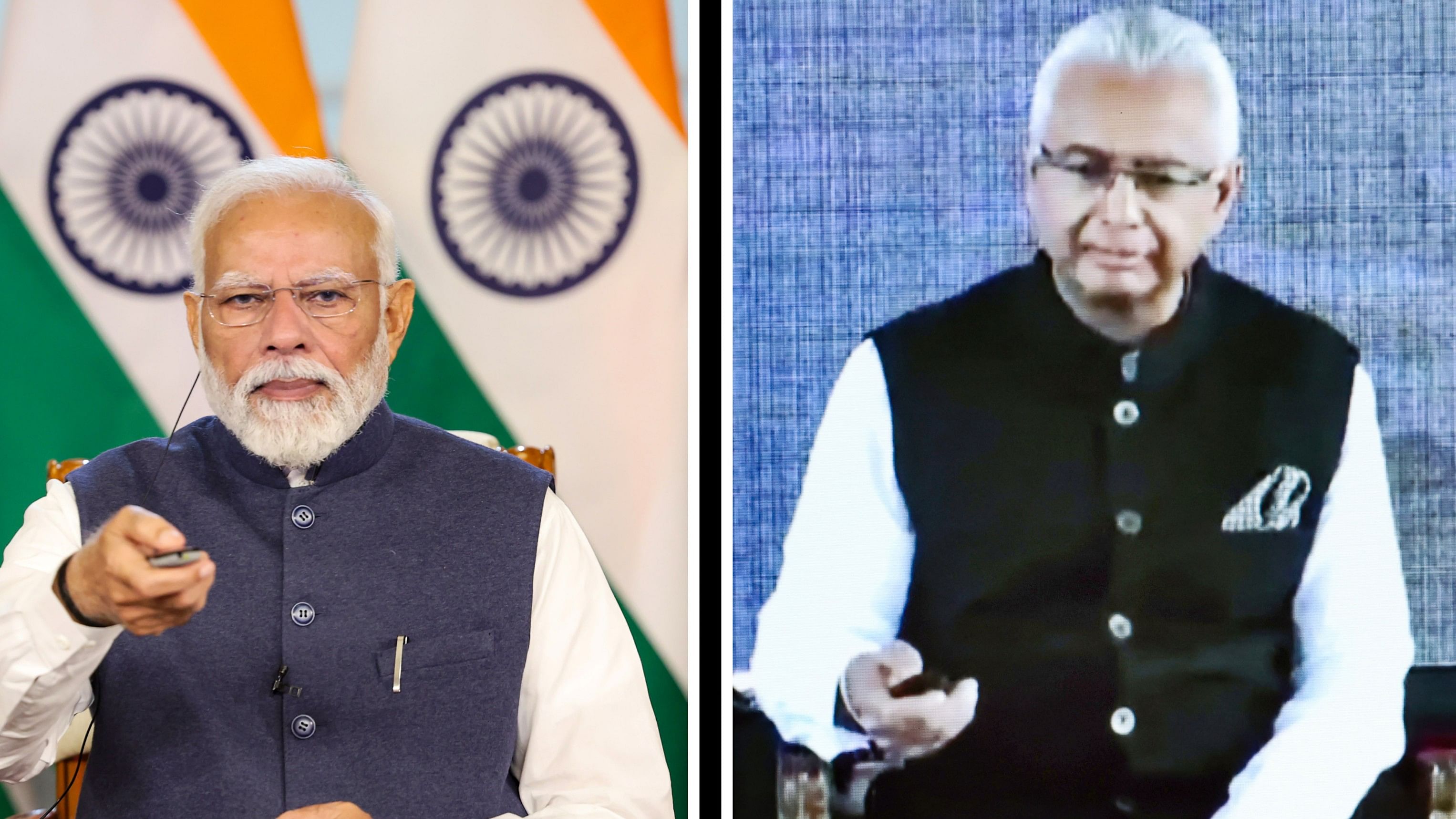
Prime Minister Narendra Modi and his Mauritian counterpart Pravind Jugnauth jointly inaugurated several India-assisted development projects at the Agalega Island in Mauritius, via a video conference, on Thursday.
Credit: PTI Photo
India's recent inauguration of an airstrip and jetty on Agaléga Island in Mauritius carries significant military implications amidst escalating regional tensions. Prime Minister Narendra Modi, in a virtual ceremony alongside Mauritian Prime Minister Pravind Jugnauth, underscored India's commitment to bolstering strategic partnerships in the southwestern Indian Ocean. The initiative aims to fortify maritime security capabilities in response to heightened Chinese naval activities in the area.
The project, initiated under a Memorandum of Understanding (MoU) signed in March 2015, ostensibly focuses on enhancing Mauritius' maritime security. However, given Agaléga Island's strategic location, speculation abounds regarding potential Indian military deployments, including maritime patrol aircraft such as the Boeing Poseidon 8I. This move signifies India's proactive stance in monitoring Chinese naval movements in the Indian Ocean.
Despite assertions by Mauritian officials that the development is purely for security enhancement, protests have erupted locally, alleging a compromise of national sovereignty. Opposition parties have accused successive governments of capitulating to New Delhi's interests. Suspicions also linger regarding Beijing's involvement in stoking anti-Indian sentiments within Mauritius.
Prime Minister Jugnauth vehemently refuted claims of relinquishing sovereignty, attributing opposition to misinformation. He emphasised the confidentiality clause in the 2015 MoU, shielding specific details from public disclosure. Additionally, Jugnauth reiterated India's consistent support for Mauritius, citing past collaborations during crises such as the Covid-19 pandemic and environmental disasters.
India's substantial contributions to Mauritius' infrastructural development, including healthcare and transportation, underscore the depth of bilateral relations. Despite apprehensions, New Delhi's involvement signifies a broader regional strategy aimed at countering China's expanding influence, while reaffirming its commitment to bolstering maritime security in the Indian Ocean region.
(With DHNS inputs)